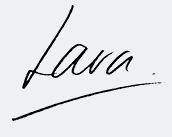“Mindfulness.” You’ve probably heard of this zen-like concept, more and more in recent years.
With that, it sometimes gets commercialized.
So, what is it exactly? First, what it’s not:
It’s not positive quotes, affirmations, journal prompts, or meditating to “om.”
It's not even just being present.
After all, if it were, that’s not what A-players—as in pro athletes, to Wall Street and British parliament, to therapeutic apps—would be turning to. But they are.
It’s deeper than that.
Mindfulness is a present moment awareness, like a self-awareness, of where are our mind, body and emotions are at any given moment. It takes us out of autopilot actions, into more conscious choice.
It’s also a set of techniques to cultivate that.
Contrary to, say, “positive thinking,” it’s often inclusive of a stressor or friction-point.
Physical pain-management is how the modern use of it originated.
Let’s take anxiousness, coming up throughout the day. There are specific practices for working through that, where you’re not trying to control it per se, but where it’s not controlling you, for relief and ease.
Or that tempting "scrolling" that gets in the way of focused work (or life, for that matter). There are practices for working with those unproductive impulses, so you stay on track.
Oh and creative problem solving. Let's not overlook those practices, expanding our perspectives.
And like the word implies, acceptance, non-judgment and compassion can all be strengthened through “relational” practices.
Oh I could go on, and on, and on.
So is it Western psychology? Or Eastern philosophy and meditation? It’s almost like the intersection, but it stems from the latter.
It’s quite Zen, literally. Yet it’s backed by thousands of research studies.
Practitioners are usually required to have years of formal instruction. It's said that it takes 10 years to even begin to get it, on that level.
I work as both a nutritionist and mindfulness facilitator (plus pilates/barre teacher), all independently from one another.
But I also facilitate mindfulness techniques, nutritionally, to shed weight, years and stress off our bodies and minds.
So now you can separate out the watered-down, trendy mindfulness from the valuable therapeutic practice.
And if you like a true mind-body approach—to eat, think (and move) well—well, you’re in the right place!

